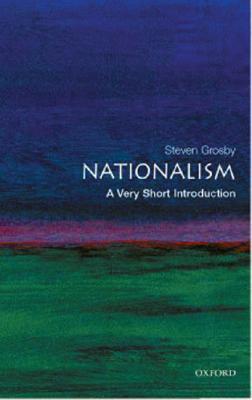
Nationalism: A Very Short Introduction
작성자
Steven Grosby
아직 평점이 없습니다
History
형식
페이퍼백
페이지
160
언어
영어
출판됨
Jan 1, 2006
출판사
Oxford University Press, USA
ISBN-10
0192840983
ISBN-13
9780192840981
설명
Nationalism has played a pivotal role in shaping societies, influencing everything from cultural identities to international relations. In exploring the origins and evolution of nationalism, the author delves into the intricate relationship between a sense of belonging and political aspirations. As nations emerge and transform, the complexities of how individuals identify themselves within those nations remain a compelling subject.
The author discusses the various forms of nationalism, reflecting on its implications in both positive and negative contexts. Through historical examples, readers can better understand the motivations behind nationalist movements, including the quest for independence, the preservation of cultural heritage, and the dangers that can arise from extreme nationalist sentiments. This examination prompts a critical look at the consequences that nationalism imposes on global dynamics.
By addressing contemporary issues and the resurgence of nationalist ideologies, the narrative challenges readers to consider the delicate balance between national pride and international cooperation. The insights encourage reflection on the future trajectory of nations as they navigate this intricate landscape, making it a thought-provoking read for anyone interested in the complexities of modern society.
The author discusses the various forms of nationalism, reflecting on its implications in both positive and negative contexts. Through historical examples, readers can better understand the motivations behind nationalist movements, including the quest for independence, the preservation of cultural heritage, and the dangers that can arise from extreme nationalist sentiments. This examination prompts a critical look at the consequences that nationalism imposes on global dynamics.
By addressing contemporary issues and the resurgence of nationalist ideologies, the narrative challenges readers to consider the delicate balance between national pride and international cooperation. The insights encourage reflection on the future trajectory of nations as they navigate this intricate landscape, making it a thought-provoking read for anyone interested in the complexities of modern society.